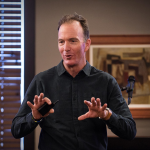Author: Lucy Bloom
I attend a lot of WHY EVENTS MUST ALWAYS HOST all over Australia as a professional speaker and I have noticed a trend of WHY EVENTS MUST ALWAYS HOST WELCOME TO COUNTRY. When events are hosted by government, they are always opened with a Welcome to Country from a local indigenous person. At the very […]
I attend a lot of WHY EVENTS MUST ALWAYS HOST all over Australia as a professional speaker and I have noticed a trend of WHY EVENTS MUST ALWAYS HOST WELCOME TO COUNTRY. When events are hosted by government, they are always opened with a Welcome to Country from a local indigenous person.
At the very least there’s an Acknowledgement of Country from one of us blow-ins. However, outside schools, government departments and council events, this basic sign of respect for the traditional custodians of the land is a bit hit and miss in the event industry.
When I am not speaking, I’m consulting and this year I have been working on a project for the Australian Institute of Aboriginal and Torres Strait Islander Studies (AIATSIS). Thousands of school kids visit the capital every year but there is no dedicated education centre for a subject which features heavily in our national story and which is part of the national school curriculum from kindy right through to year twelve. Go figure! So AIATSIS is mobilising to change that.
This project has turbocharged my understanding of Indigenous Australia of late. I went to school in the 1980s and my knowledge of indigenous history needed some serious correcting. After all the background reading handed to me by AIATSIS, it was clear to me that as a speaker, I bring people together and it is my responsibility to pay respect in a ritual that acknowledges the traditional owners of the land.
I asked my Koori mate Sheree Stewart, a registered midwife from the Wergaia people, what Welcome to Country means to her.
“Welcome or acknowledgment is about creating a space to say you are on a certain Country that feeds, homes and provides for us. Acknowledge her, don’t be a jerk about it and then you are most welcome to celebrate on our land with us,” says Sheree. She’s from Mallee in Victoria which she describes as “a gorgeous place of stark blue sky and infinite red sand”. Her connection to Country is incredibly strong and generous in its welcoming spirit.
If you cannot have an elder of the local tribe for your event, acknowledgment of Country is the next best thing. Anyone in attendance can present this. See this fact sheet for protocols.
When I begin a speech these days, I start by acknowledging that I am a white woman born on the land of the Zulu and the Ndebele in Africa. My heritage reaches beyond Africa to western Europe before that. I am from a lineage of persistent blow-ins and I am grateful to be welcome in Australia. Then I acknowledge the traditional custodians of the land on which we have gathered. In my home town of Sydney, that’s the Gadigal people of the Eora Nation. If you are unsure which mob you should be acknowledging, refer to this Aboriginal map of Australia which is produced by AIATSIS. I have a copy of this map on my fridge to remind my Airbnb guests who lived here first.
One of the best Welcome to Country ceremonies that I have witnessed was at an event last year at the Tesla showroom in Martin Place. Attended by Gadigal elder, Uncle Ray, he acknowledged the elders past, present and emerging. He then went on to acknowledge the elders of all those who stood in the room. The love and respect that poured out of this man were palpable.
Acknowledgment of Country should not be read like another aspect of event housekeeping. It’s a ritual. It should be spoken with honour. It could be something like the words below, but they should be natural and respectful.
“I acknowledge the traditional custodians of the land on which we stand. The land of the [look up which mob is your local people]. I recognise their continuing connection to land, waters and community. I pay my respects to them and their culture; and to elders both past and present. I also acknowledge that this always was and always will be Aboriginal land.” That last sentence is important.
The first time I ever acknowledged Country was an event in my state electorate of Coogee. Coogee means “stinky place” in the local language, which I find a little harsh. I was the mediator and MC for a debate between the top three state political candidates in the marginal seat of Coogee. There were three white candidates and an audience of 300 white folk. And there I was, a white lady MC. A simple but heartfelt Acknowledgment of Country was, to my surprise, met with a huge round of applause, whoops and nods. I wondered if the Greens had stacked the audience. Labor went on to win the seat.
If you’re ready to broaden your knowledge, start by reading Bruce Pascoe’s book, Dark Emu (Magabala Books, 2018). It’s a beautifully written book which corrects the rubbish indigenous history we were taught at school up to the 1980s. It shows how complex, clever and sustainable Aboriginal culture and land management was at the time of invasion. The white fellas had much to learn when they arrived in Australia with cattle, woolen suits and Bibles. Get yourself a copy of the Little Red Yellow Black Book (Aboriginal Studies Press) for a much broader and overall understanding of Aboriginal culture and history.
Here are the reasons why event planners should always allow for Welcome or Acknowledgement of Country.
Here are the things you can do to during Reconciliation Week or any time at all. Broadening your knowledge is good for neuroplasticity and you’ll live longer as well as being equipped to be more inclusive.
Contact Us at WeSpeak Global and follow us on Twitter
Author Profile
No results available
The articles, video and images embedded on these pages are from various speakers and talent.
These remain the property of its owner and are not affiliated with or endorsed by WeSpeak Global.

In September of 2012, a freak failure of the dynamic positioning system of the vessel Chris Lemons Speaker was working under, resulted in the umbilical which provides him with breathing gas, light and heat being severed completely. He was left on the sea-bed, in complete darkness 300 feet below the surface, with only the 5 […]

Connection with someone takes more than common interests of What Makes People Click. It also takes this. Do you know who created the world’s first social network? It wasn’t Zuckerberg, Dorsey, or Tom from MySpace. It was the person who kindled the first fire. The fire’s loud crackling, billowing smoke, and beautiful orange glow attracted others […]

This expedition was the first in a series of five Beyond Engulfing Magnificence Expeditions with Jacques Marais. The idea was to mountain bike the edge of the incredible Namib Desert from Serra Cafema on the Angolan border to Swakopmund along the coast of Namibia. I’m on the edge of a gigantic granite outcrop. Ep.2/9 | Engulfing […]

Lizette Volkwyn is also one of only two certified PEI human lie detector in South Africa! Meet Lizette Volkwyn, an energetic, dynamic and focused South African who believes that all you have to do today is to be 1% better than yesterday. Lizette encourages individuals to strive for self-acceptance and to appreciate their self-worth. She […]

What many people don’t realize is that they can actually Make Your Own Luck, by changing their beliefs about themselves and what will happen in their lives. This sounds absurd, but it makes a lot of sense once you understand the logic behind it all. People tend to think that luck is something that is out […]

“How you see yourself determines what you see for yourself, Are You Externally or Internally Driven?.” Veli Ndaba – ‘The NeuroEngineer’ Self-esteem represents an overall evaluation of oneself – the extent to which one feels positively rather than negatively toward oneself – and views oneself as a person of value and worth. Contingent self-esteem is […]

How to make change work for you, As human beings, we don’t look at change and think, “Hmmm I want more of that.” Given my own relationship to and with change, I challenged myself to figure out why this is true. Why do we avoid change? Why does change create stress, fear and uncertainty? The […]

Veteran business writer Theodore Kinney interviews Dane Jensen and shares his takeaways from The Power of leading under Pressure for strategy+business. Pressure is a goad. Whether it arrives in the guise of a burning platform or a project deadline, a strategic goal or a performance target, a high-stakes deal or an aggressive competitor, pressure can […]
No results available
Our Mission
© All rights reserved 2025. Created using VOXEL THEME